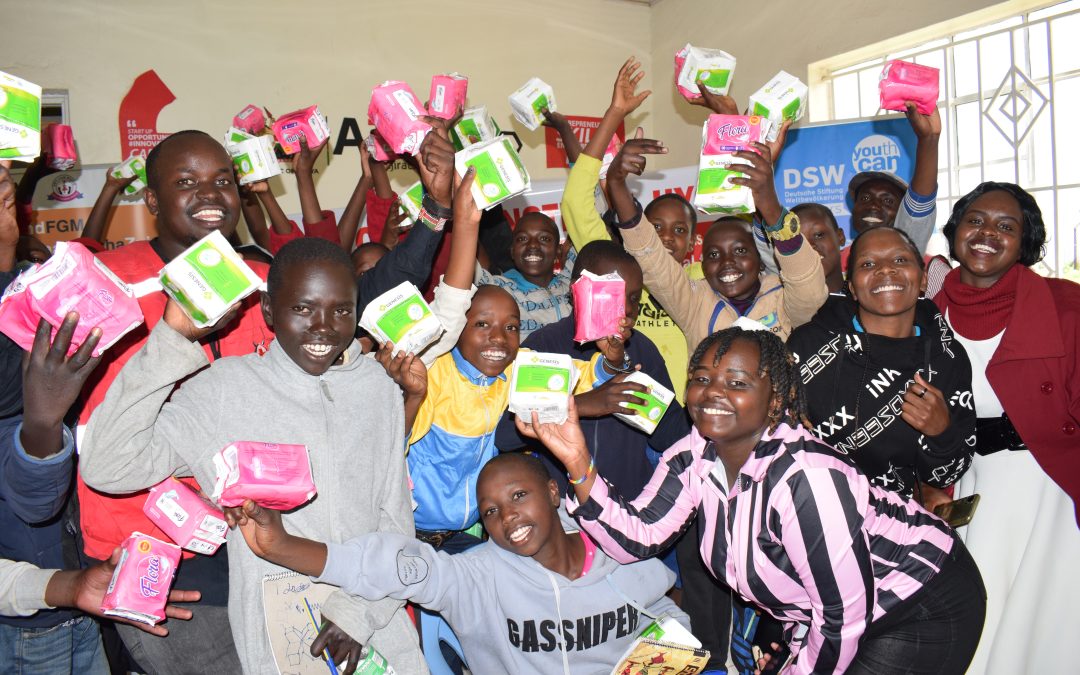Menstrual Health is integral in achieving Kenya’s commitments in global and developmental milestones including the 2030 Agenda for Sustainable Development. This is because it is intricately linked to multiple sectors such as but not limited to Good Health (Goal 3), Quality Education (Goal 4), and Gender Equality (Goal 5).
While that is the case, we are yet to make inroads in demystifying menstruation as a natural biological process, even though as a country, we have some of the most progressive menstrual health policies.
For example, recently in bid to bring attention to the status of menstrual health management in the country, Senator Gloria Orwoba walked into parliament with her “period-stained” white outfit, attracting mixed reactions. On one hand were people who termed the ‘stunt’ shameful, disgraceful and disrespectful. On the other hand, were advocates of menstrual health, who applauded her, terming it as the right move in normalising menstruation and conversations around it.
This incident proves that we still have a long way to go in ending the shame, stigma and misinformation surrounding the menstrual health. And as we mark this year’s Menstrual Hygiene Day under the theme, ‘Making menstruation a normal fact of life by 2030’ all hands are needed on deck to make this happen.
There are essential elements needed for period management. For starters, women and girls need quality period products that are safe, affordable and reliable. They also need safe, private and sanitary facilities to wash, change and dispose of used products.
Importantly, they need education on menstruation and how to manage it. Empowering women and girls with information about menstrual management goes a long way in reducing exposure to health risks, reducing myths, misconceptions and negative attitudes that often result in shaming, bullying and even gender-based violence.
Over the years, we have made progress, including supplying sanitary towels to schools and repealing value added tax on period products. In addition, as a country, we have in place policies such as Menstrual Health Management Policy, Kenya School Health Policy and laws such as the Basic Education Act, that prove we can continue with the positive trajectory to ensure women and girls from all walks of life have access to period products.
However, if we are not careful, these gains could easily be reversed. The cost of menstrual products has increased, making it even more difficult for women and girls to access these essential products, during these trying economic times.
This would also set a regressive pattern in which women and girls turn to transactional sex to afford period products. Already, there is evidence that this is happening. A 2015 study in Western Kenya by a group of authors led by Penelope A. Phillips-Howard, showed that 10 per cent of young adolescents admitted to transactional sex for pads. Transactional sex means women and girls are pressured to have sex when they would otherwise choose not to, thus exposing them to risks such as unintended pregnancies, HIV & STIs, and gender-based violence.
Funding Menstrual Health
We must, therefore, get back on track and accelerate efforts to ensure women and girls can achieve their full potential, without being impeded by the natural process of menstruation.
In Kenya, 50.5 percent of the population is female, meaning, a significant number of women and girls menstruate every month. It, therefore, makes sense to invest in menstrual health as it affects half of the population and can positively benefit women and girls’ lives. Improved knowledge of menstruation can also help women and girls to identify broader sexual reproductive health issues and enable them to make informed reproductive health decisions, including contraception uptake.
We must also be cognizant of the fact that lack of sufficient evidence-based research is a barrier to investing in menstrual health interventions and programmes. Therefore, there is a need to finance studies that will support the linkage between menstrual health and socio-economic, educational and health gains.
This year as we commemorate Menstrual Hygiene Day, we must commit to making menstruation a normal fact of life both at country and individual level. This is possible if we all come together to amplify efforts that address taboos, stigma and misinformation around menstruation.
This article was written by Ms Evelyn Samba, Kenya country director at DSW.

